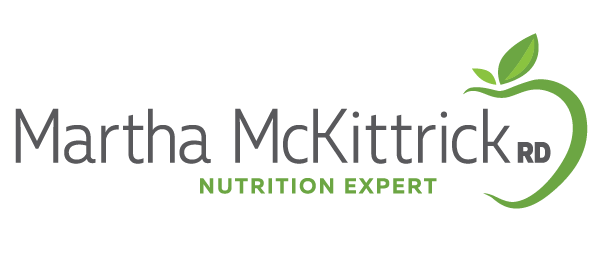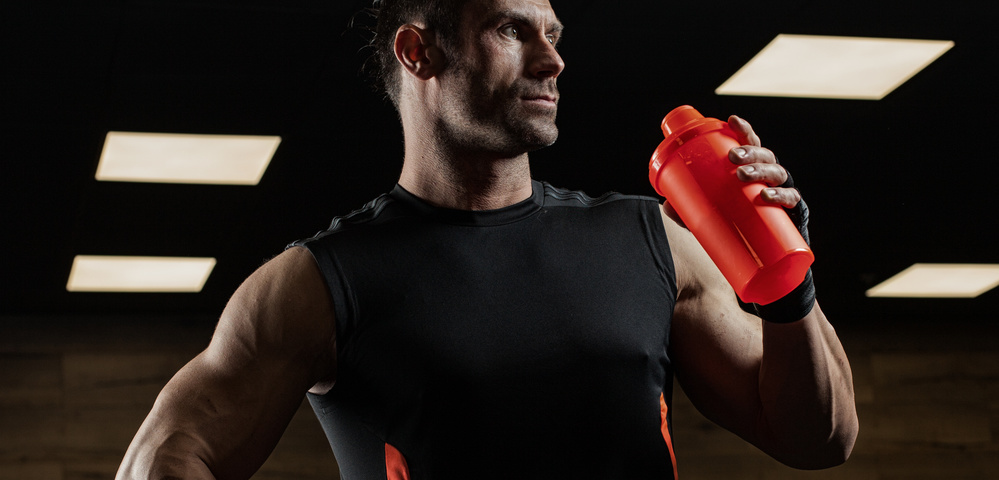6 Ways Protein Can Help You Lose Weight

I bet many of you have a New Year’s Resolution to lose weight. Here is a little secret that can help you in your quest … consuming adequate protein can help you lose weight. We’ve all heard the debates on what kind of diet is best for weight loss – low carb, Paleo, low fat, etc. There is obviously no winning diet as each person is an individual and weight loss diets aren’t a “one size fits all approach”. However, most studies do show that protein can help you lose weight and keep it off for 6 reasons. So whatever weight loss plan you choose to follow, keep these tips in mind:
How protein can help you lose weight

- Satiety: Protein has greater satiety than either carbohydrates or fat, making people feel fuller and more satisfied for a longer period of time. As a result, they are better able to control their appetite and eat less. Have you ever noticed how eggs for breakfast can keep you feeling full longer than cereal? A study showed that high-protein dieters also reported a reduced desire to eat late at night and a reduced preoccupation with thoughts of food compared with their counterparts consuming moderate amounts of protein during a longitudinal 12-week study on overweight and obese men. The exact amount of protein needed to elicit these responses is not known, but it’s suggested that we aim for 25-35 grams of protein per meal. Other researchers suggest that the macronutrient of your diet be 25% protein. Reference #1, Reference #2
- Thermogenesis: Thermogenesis is the amount of energy needed to digest, absorb, and metabolize nutrients. Protein has a higher rate of thermogenesis than both carbohydrate and fat (three times higher than carbohydrate and as much as 10 times higher than fat). The human body burns more calories in the process of digesting protein than it does in the process of digesting carbohydrate or fat. Reference
- Preserves loss of muscle with dieting. Losing some muscle when dieting, especially during a large weight loss weight, is inevitable. Here is what happens to muscle when you lose weight, according to Donald Layman, PhD, professor emeritus of nutrition at the University of Illinois: “If you were to go on a starvation diet, you would lose 50% lean tissue and 50% fat. If you were to lose weight using a high-carbohydrate diet similar to the Food Guide Pyramid, you’ll be breaking down about 35% lean tissue and
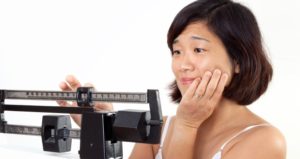 65% fat. Losing weight on a high-protein diet and lean tissue breakdown drops to 20%, while fat breakdown increases to 80%. Add exercise to the mix, and protein breakdown drops even lower—below 10%.” The last thing you want to do when losing weight is to lose significant amounts of muscle. Muscle is an active tissue compared to fat. Preserving muscle will help to decrease the drop in metabolism that occurs with dieting and losing weight. Reference
65% fat. Losing weight on a high-protein diet and lean tissue breakdown drops to 20%, while fat breakdown increases to 80%. Add exercise to the mix, and protein breakdown drops even lower—below 10%.” The last thing you want to do when losing weight is to lose significant amounts of muscle. Muscle is an active tissue compared to fat. Preserving muscle will help to decrease the drop in metabolism that occurs with dieting and losing weight. Reference - Keeping weight loss off. High protein diets may also be more likely to help keep the weight from coming back, improving weight maintenance, due to better compliance and increased satiety. Studies show increased dietary protein leads to sustained weight loss over the long term (i.e. 12 months) compared to lower protein intake. Reference
- Helps you consume fewer calories. Studies have shown that subjects who replace carbohydrate with protein eat roughly 200 to 400 fewer kcal per day than high-carbohydrate dieters and find it easier to self-regulate their intake.
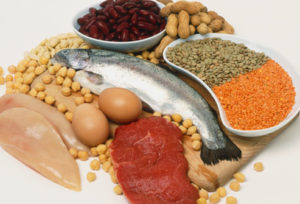 Decreased abdominal fat. Preliminary research published in 2012 in Nutrition & Metabolism found that eating higher amounts of high-quality protein (milk, eggs, and beef) was associated with a lower percentage of central abdominal fat. This inverse relationship was not seen for carbohydrate and dietary fat. Another study in 2013 in Obesity found that consuming increased protein (35% of calories) more frequently (6×) throughout the day decreased body fat and abdominal fat and increased lean body mass and thermogenesis more than a 15% protein diet (the standard dietary recommendation) consumed over three meals/day in overweight individuals.
Decreased abdominal fat. Preliminary research published in 2012 in Nutrition & Metabolism found that eating higher amounts of high-quality protein (milk, eggs, and beef) was associated with a lower percentage of central abdominal fat. This inverse relationship was not seen for carbohydrate and dietary fat. Another study in 2013 in Obesity found that consuming increased protein (35% of calories) more frequently (6×) throughout the day decreased body fat and abdominal fat and increased lean body mass and thermogenesis more than a 15% protein diet (the standard dietary recommendation) consumed over three meals/day in overweight individuals.
Does that have you convinced to eat adequate protein? Stay tuned for my upcoming blog posts on: how much protein you need a day, how to time your protein, protein content of foods, tips for meal planning to consume adequate protein at proper time!
RELATED POSTS
MEET MARTHA
I especially love problem-solving, whether it’s helping women defeat issues plaguing them for years, helping a busy executive find practical ways to get heart healthy, or providing tips to help you reverse diabetes. That’s why I’m on a constant quest to expand my knowledge by staying on top of the latest research.
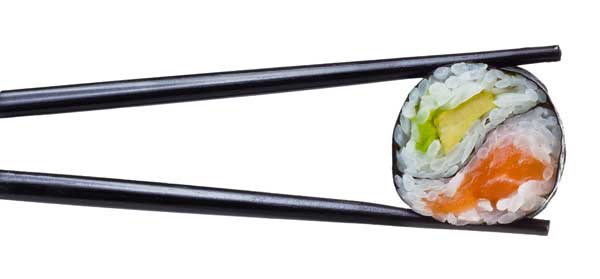
20 Ways To Eat Out 550 Calories or Less!
No time to cook? We’ve got you covered. Here are 20 healthy meals from a variety of cuisines that won’t pack on the pounds. Most of them also have less than 30 grams of carbs.
Subscribe to my newsletter and get this free download.
